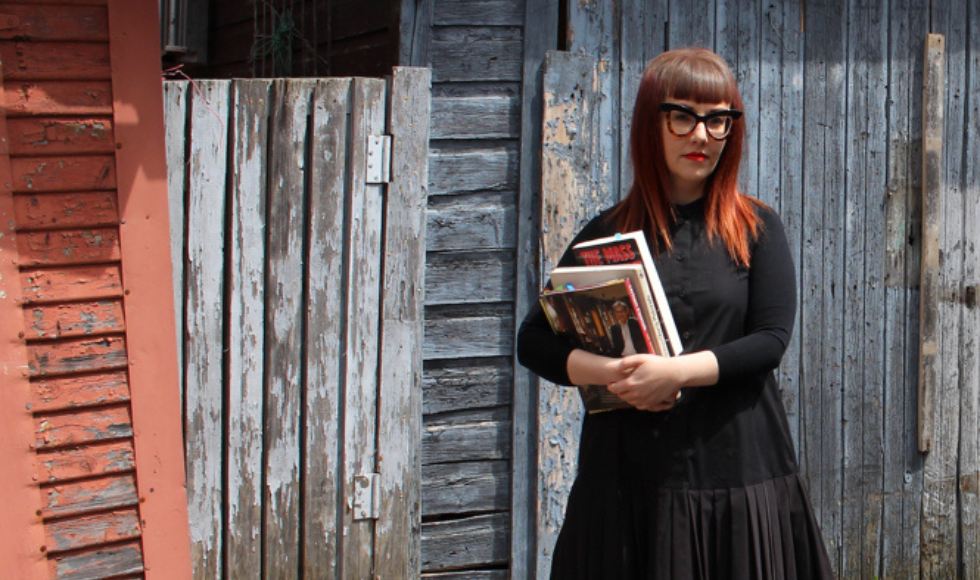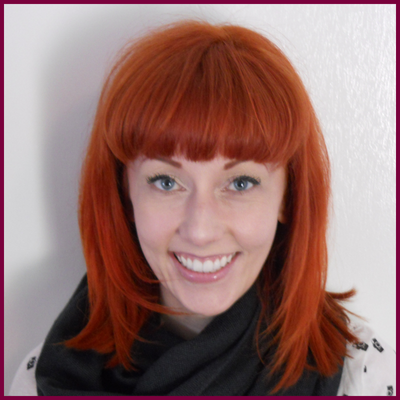Wilson Institute for Canadian History welcomes new director Kristine Alexander

Alexander was previously an associate professor of history and director of the cross-faculty Institute for Child and Youth Studies at the University of Lethbridge, where she also held the Canada Research Chair in Child and Youth Studies.
BY Sara Laux, Faculty of Humanities
August 28, 2025
The Wilson Institute for Canadian History has welcomed its new director, historian Kristine Alexander.
Before this, Alexander was an associate professor of history and director of the cross-faculty Institute for Child and Youth Studies at the University of Lethbridge, where she also held the Canada Research Chair in Child and Youth Studies.
Her 2017 book, Guiding Modern Girls: Imperialism, Internationalism and the Girl Guide Movement (UBC Press) won the Wilson Book Prize and the Canadian History of Education Association Founders’ Prize for Best English-Language Book.
Originally from Winnipeg, she holds a PhD in history from York University. Her most recent book is Small Stories of War: Children, Youth, and Conflict in Canada and Beyond (McGill-Queen’s University Press), which she co-edited with Barbara Lorenzkowski and Andrew Burtch.
The Wilson Institute for Canadian History was founded in 2008 following a generous donation from McMaster chancellor emeritus L.R. (Red) Wilson. It focuses on understanding Canada’s history from a global perspective and its place within transnational events.
We chatted with Alexander about her research and new role.
 Can you talk a little about your research?
Can you talk a little about your research?
I would describe myself as a historian with interdisciplinary leanings, whose work seeks to create connections between past and present, the university and the community, and Canada and the world.
Much of my research to date has focused on the twentieth century, an era that many observers hoped would be both “Canada’s Century” and “the Century of the Child.” The visions of peace and prosperity at the heart of these ideals, however, were never meant for everyone, and my work therefore investigates histories of violence and injustice while also demonstrating the power of activism and resistance.
I’m interested in understanding how macro-level structures and events – things like colonialism and war – have shaped the life chances and lived experiences of individual young people in Canada and beyond. I am also a feminist scholar. In my first book, Guiding Modern Girls, I paid particular attention to girls and young women – a group of historical actors who have largely been ignored in scholarship about “big” issues like globalization and empire.
In addition to asking how the Canadian past relates to historical currents and networks in other parts of the world, I’m also interested in thinking through these questions on a more local level. While at the University of Lethbridge, I worked with students and colleagues from different disciplines on a number of community-engaged public history projects. These collaborative endeavours, which focused on things like the queer history of southern Alberta and Indigenous youth responses to Canada’s sesquicentennial, are some of the most meaningful work I’ve done to date.
What do you find interesting about studying the history of children and youth? And what relevance does it have on the present?
One of my American colleagues says that studying childhood is where you can see a culture in high relief: If you want to see what a culture values – and doesn’t value – look at how it treats young people. Looking closely at the different ways Canada has treated Indigenous and non-Indigenous children is an especially clear example of this.
In addition to writing about the lives of actual young people, I’m also interested in the history of ideas about childhood and adulthood and how they have been used in politics and law. My current research, for example, asks how the Canadian state has used concepts of childhood, adulthood, and the relationship between the two to justify the dispossession of Indigenous lands and resources.
How has your concept of Canadian history changed as you’ve progressed through your career?
The historical profession, the field of Canadian history, and universities more broadly have changed so much over the past several decades! When I started my PhD just over twenty years ago, historians often worked alone, spending long hours in the archives and producing single-authored monographs. While this is still an important part of the work we do, I have also come to recognize that there is immense value in working collaboratively, both with other scholars and with organizations and individuals outside the university.
In terms of Canadian history, I would say one of the biggest and most important shifts has been the increased recognition, prompted in large part by Indigenous scholarship and activism, of the fact that Canada was and remains a settler colonial state. No aspect of our nation’s past can be fully understood without reckoning with this reality, and I hope to support the ethical production of new knowledge in this area through my work as director of the Wilson Institute.
One final change, in which the Wilson Institute has played a significant role, is the growing number of Canadian historians who use transnational approaches in their work. Nation-based frameworks can obscure as much as they reveal, and it has been exciting to read new scholarship that analyzes the Canadian past in broader global and imperial contexts.
That’s a perfect segue into my next question – can you tell me about your vision for the Wilson Institute?
The Wilson Institute is the material expression of a desire to do Canadian history differently and better, and I’m looking forward to building on the work done by its previous directors.
My vision for the future of the Institute foregrounds relationship-building, social justice, creativity, and collaboration. While continuing to expand the Institute’s strengths as a centre for cutting-edge scholarship, I hope to foster a lively community of historical inquiry and practice that makes valuable contributions nationally, internationally, and in and around Hamilton.


